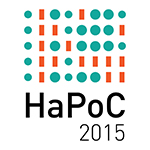The Gödelian Arguments represent the effort done by some scholars to interpret Gödel's Incompleteness Theorems with the purpose of showing that minds cannot be explained in purely mechanist terms. In this setting, Reinhardt and Carlson opened a line of research intended to study a formal theory of knowing machines, using Epistemic Arithmetic, encompassing some typically informal aspects of the Gödelian Arguments about the knowledge that can be acquired by machines. In such a framework, several variants of the Church-Turing Thesis are constructed and interpreted by employing an epistemic notion of knowledge formalized through a modal operator K for "knowledge" and adequate axioms. For instance, the axiom K f --> f establishes the factivity of knowledge. In our contribution, we survey such a theory of knowing machines and extend some results provided by Alexander, who recently has proved that a machine can know its own code exactly but cannot know its own factivity (despite actually being factive). We show a machine that, for (at least) a specific choice of the function f and of the related input, knows its own code and own factivity. This represent an additional element for the analysis of the Gödelian Arguments.
- Presentation
- Other

 PDF version
PDF version
